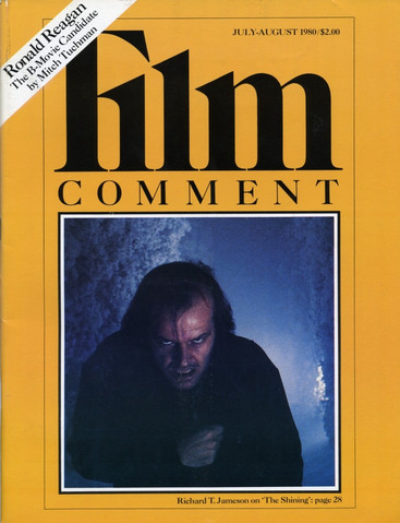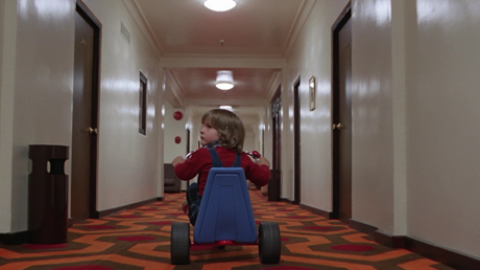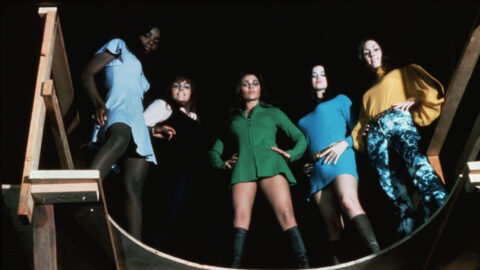Kubrick’s Shining
Keep repeating to yourself: “It’s not only a horror movie, it’s a Stanley Kubrick film. ” Richard T. Jameson gets on Kubrick’s wavelength, says The Shining is an Overlooked masterpiece, and makes it all make sense.
Midsection: Rednecks & Russ Meyer
The South has risen again—in small-town melodramas and on-the-road comedies—and now Travolta, Redford , and Meat Loaf are claiming the territory; Richard Thompson provides seminal travel notes on redneck movies. In the swamp of the redneck libido lie the grits-and-tits films of Russ Meyer. Roger Ebert celebrates the tenth anniversary of their Beyond the Valley of the Dolls; and Meyer talks blunt and funny with Ed Lowry and Louis Black.
Ladies and Gentlemen, the Next President of the United States
“Ronald Reagan announced today he is a candidate for the President of the United States,” Johnny Carson quipped last November. “He had to: Warner Bros. told him he was too old to play ‘best friend .'” What was once a joke could soon be a fact. Mitch Tuchman has compiled a dossier on the candidate’s movies. Coming next year: Bonzo Goes to the White House?
Caligari to Hitler
The New German Cinema has won many devotees in the past decade-and, with The Marriage of Maria Braun, a measure of popular success as well. Raymond Durgnat analyzes the work of five major directors (Fassbinder, Straub, Wenders, Herzog, Syberberg) and finds they’ve created a cinema of cultural amnesia.
Journals: London
Gilbert Adair muses on scowling Americans, misguided Frenchmen, and flying Dutchmen.
Bad Movies
The Surrealists loved bad movies, seeing them as subversive attacks on the tyranny of narrative form. What would they have made of Edward D. Wood’s horrifyingly inept cine-poems or of Oscar Micheaux’s melodramas, with black actors in whiteface? J. Hoberman considers the phenomenon.
Spain Also Rises
Francisco Franco is still dead—and the Spanish cinema lives. Annette Insdorf monitors the life signs.
Michael Caine Interview
In good films and bad, he’s kept the audience’s affection and respect. Marjorie Rosen finds out why.
Soon/Maybe/Never to Be a Major Motion Picture
Once, nearly every best-seller made it to the big screen. Now a novel like Fear of Flying can sell 6 million copies and—nothing. By Beverly Walker.
Books
Steve Lawson on new collections of criticism by Sarris, Kauffmann, and Kael. Dan Yakir reviews a new study of François Truffaut’s films.
Television
TV movies: Ask a hard question, get a simple answer. By Daniel Menaker.
Independents
Eight new works restore the notion of “Film As Art.” By Amos Vogel.
Bulletin Board






